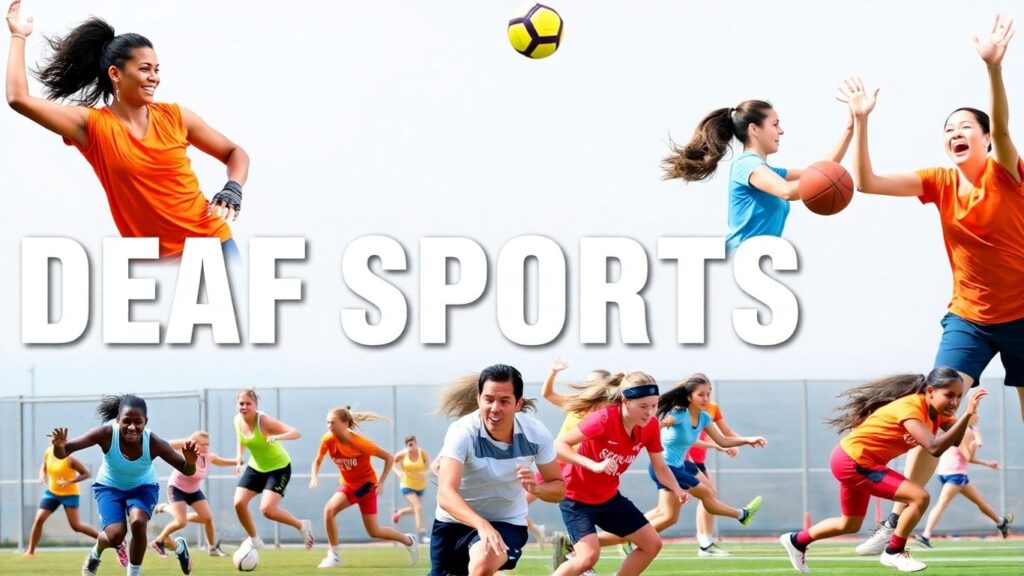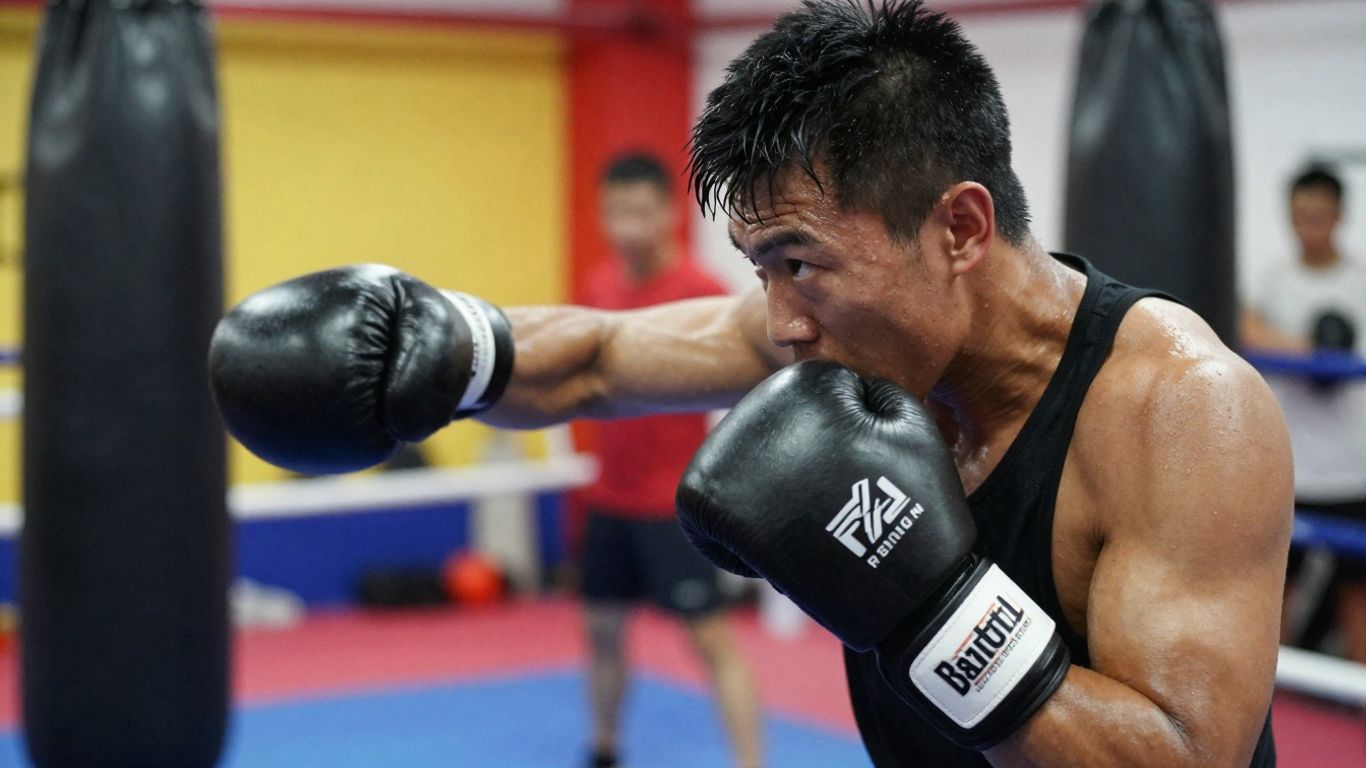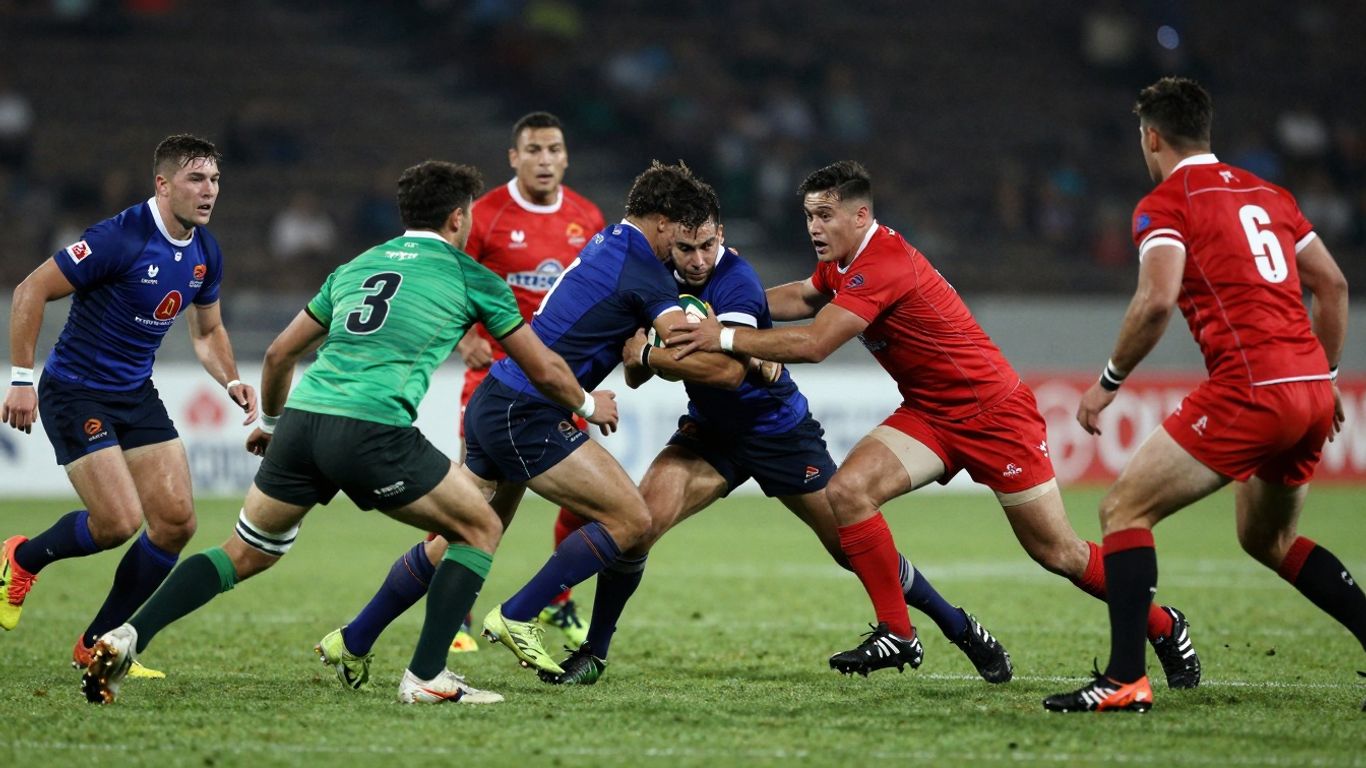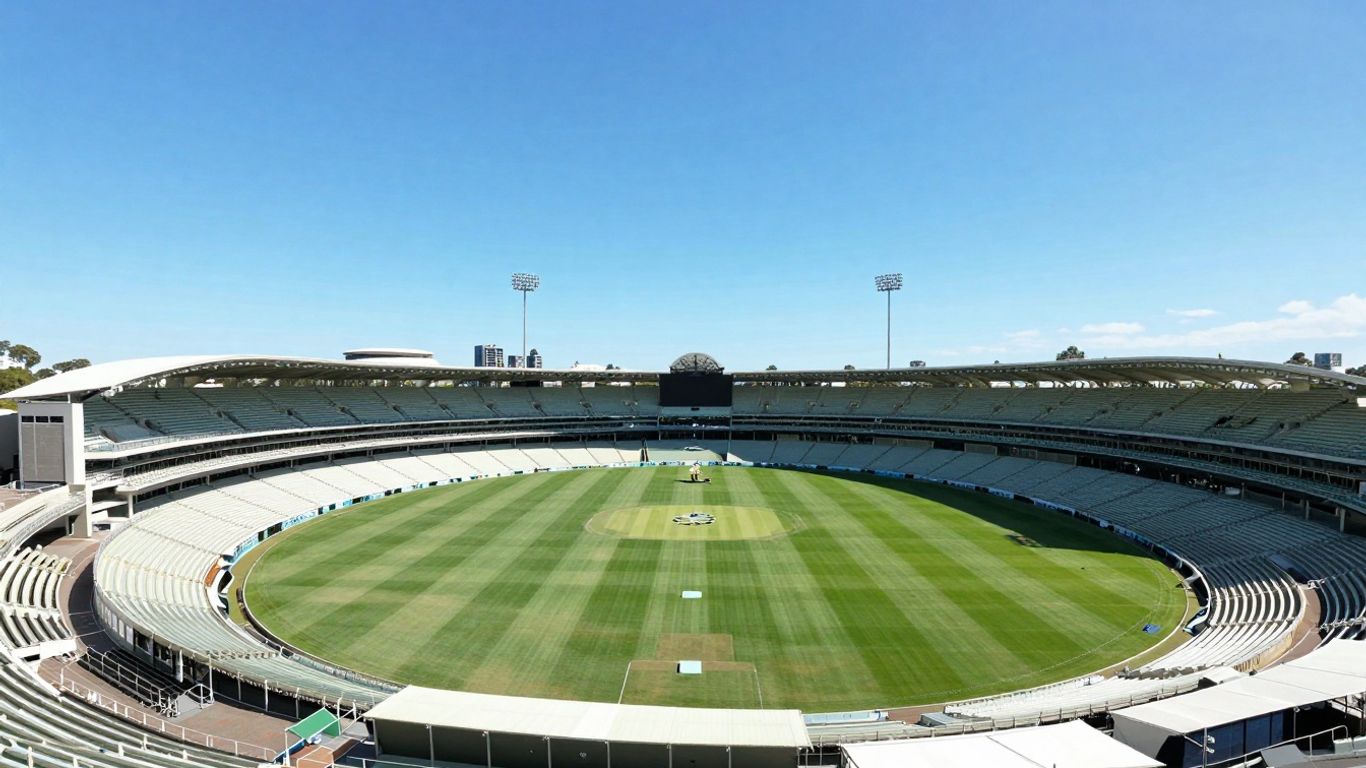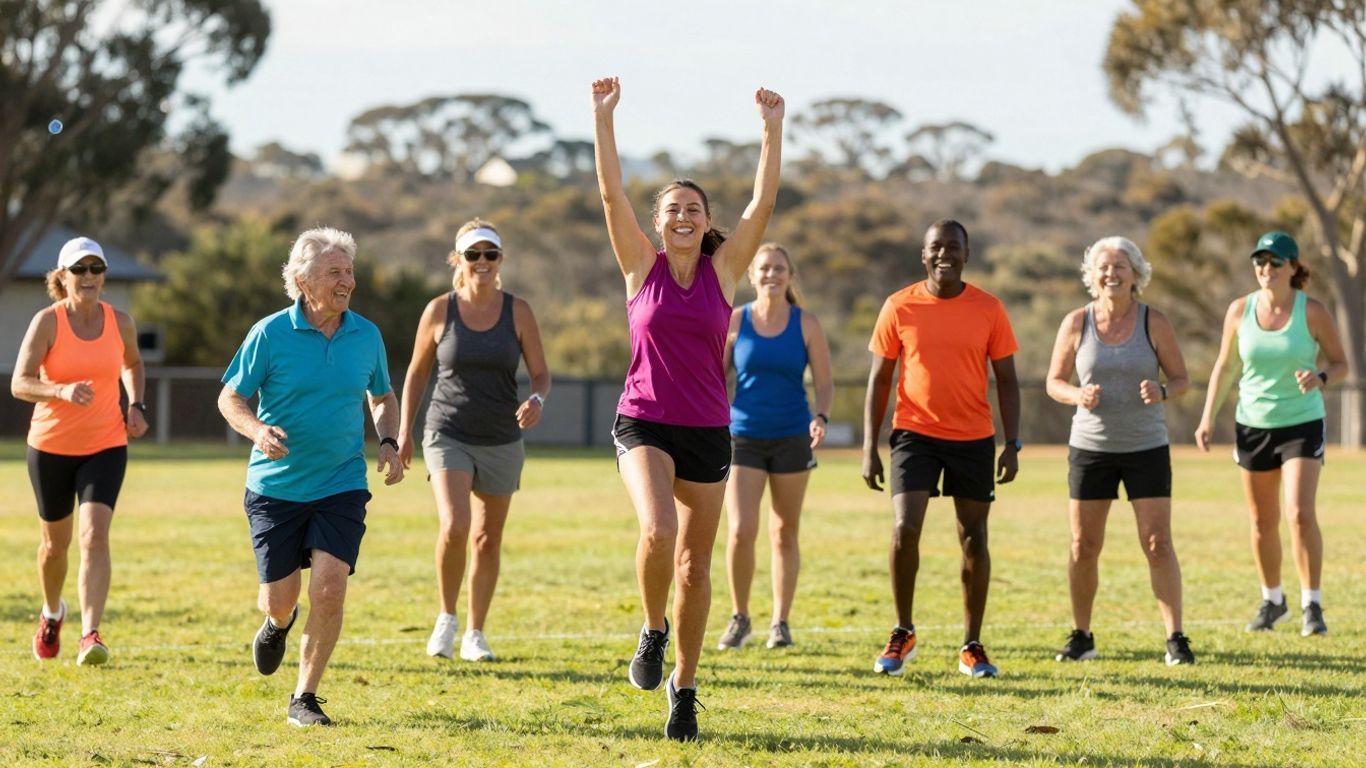Sport is a fantastic way to connect with people and push yourself. In Australia, deaf sports are really taking off, and Deaf Sports Australia is a big part of that. We chatted with them to get the lowdown on what’s happening. It turns out there’s a whole world of opportunities out there for deaf and hard of hearing Aussies to get involved, whether you’re just starting out or aiming for the top.
Key Takeaways
- Deaf Sports Australia runs programs like the Active Deaf Sports Club and Active Deaf Kids, offering sports-specific Auslan lessons and promoting health benefits for young deaf individuals.
- The Australian Deaf Games happen every four years, bringing together over 14 sports and fostering community connections for deaf and hard of hearing people across the nation.
- Cricket Australia and Touch Football Australia are leading the way in inclusivity, with initiatives like Auslan training and expanding membership, inspiring elite deaf athletes.
- Deaf Sports Australia works with government and sporting bodies to support athletes, ensuring fair play through a classification process and strengthening national deaf organisations.
- Pathways exist for both deaf-specific sports and mainstream sports, with guidance available for athletes looking to develop coaching, refereeing, or elite playing skills.
Discovering Deaf Sports Australia Programs

Getting involved in sports is a fantastic way to stay active and connect with others. Deaf Sports Australia offers a range of programs designed to make sports accessible and enjoyable for everyone in the deaf and hard-of-hearing community. Whether you’re a kid just starting out or looking to compete, there’s something here for you.
Active Deaf Sports Club Initiatives
These clubs are all about bringing people together through sport. They often run workshops that not only focus on playing a sport but also on improving communication. Think about learning specific Auslan signs for different sports – it makes a huge difference! Coaches, volunteers, and anyone involved get a chance to learn the best ways to support deaf and hard-of-hearing participants. It’s about building a more inclusive sporting environment from the ground up.
Active Deaf Kids Program Benefits
This program is specifically for younger Aussies. It’s a great way for deaf and hard-of-hearing kids to discover the health and social upsides of getting involved in sports. The Active Deaf Kids Program helps kids find their feet in the sporting world, showing them the different pathways available, from local clubs to bigger events like the Deaflympics. It’s about building confidence and a lifelong love for being active.
Understanding Auslan in Sports
Communication is key in any sport, and for deaf athletes, Auslan plays a vital role. Deaf Sports Australia recognises this and often incorporates Auslan training into their programs. This isn’t just about learning signs; it’s about fostering an environment where everyone can understand and be understood. Imagine a game where the referee uses a visual cue instead of a whistle, or where team huddles include clear sign language. It makes a world of difference for participation and enjoyment.
The Australian Deaf Games Experience

The Australian Deaf Games (ADG) is a massive event, happening every four years. It’s a huge celebration of sport, community, and just plain fun for deaf and hard of hearing Australians. Think of it as a massive get-together where people from all over the country come to compete, catch up with old mates, and make new ones. It’s not just about the medals, though there are plenty of those across more than a dozen sports. It’s also about the atmosphere, the shared experiences, and the feeling of belonging.
Celebrating Sport Every Four Years
This multi-sport event is a cornerstone for the deaf sporting calendar. It’s a chance for athletes to showcase their skills and push their limits in a supportive environment. The games typically span about eight days, packed with competitions, but also a whole heap of social and cultural activities. It’s designed to be more than just sport; it’s a festival.
Community and Social Connections
One of the best things about the ADG is the community aspect. It brings together families, friends, and athletes, creating a vibrant atmosphere. People connect over their shared love of sport and their deaf identity. It’s a place where friendships are forged and strengthened, and where everyone feels welcome.
Showcasing National Sporting Championships
While the ADG is the big quadrennial event, many national deaf sports organisations also hold their own annual championships. These events are often where state and territory rivals go head-to-head. They are a vital part of the pathway for athletes aiming for bigger international competitions. It’s a chance to see the best of the best in specific sports right here in Australia.
The Australian Deaf Games are a fantastic opportunity for deaf and hard of hearing Australians to come together, compete, and celebrate. It’s a testament to the passion and dedication within the deaf sporting community.
Here’s a look at what you might find at the Games:
- Sports Galore: A wide range of sports are usually on offer, from team games to individual pursuits.
- Social Events: Beyond the competition, there are often organised social gatherings, tours, and events.
- Family Friendly: The Games aim to be inclusive for everyone, including families and supporters.
- Auslan Support: Efforts are made to ensure communication is accessible, often with Auslan interpreters available.
Growing Participation in Deaf Sports
It’s really great to see more and more deaf and hard of hearing Aussies getting involved in sports. Things are definitely moving in the right direction, with organisations and sports bodies working together to make things more accessible. It’s not just about playing, either; it’s about building community and finding pathways for everyone, from kids just starting out to those aiming for the top.
Cricket Australia’s Inclusive Approach
Cricket Australia has been making some serious waves lately with their commitment to including deaf and hard of hearing players. They’ve been putting in the effort to raise awareness and even provide Auslan training for their staff and volunteers. This kind of proactive approach makes a huge difference. We’ve even seen some incredible stories, like a deaf cricketer from South Australia who not only represented his state at the National Cricket Inclusion Championship but also the National Indigenous Cricket Championships. That’s pretty amazing and shows what’s possible when sports really open their doors.
Touch Football Australia’s Expansion
Touch Football Australia is another sport that’s seeing steady growth in its deaf and hard of hearing membership. It’s fantastic to see this sport actively expanding its reach and welcoming more participants. The more inclusive sports become, the more deaf individuals are drawn to them, seeing real opportunities to compete and connect.
Inspiring Elite Deaf Athletes
Australia has some seriously talented deaf athletes who are achieving incredible things, both in deaf-specific competitions and mainstream sports. We’ve seen them compete at the Olympics, Commonwealth Games, and rack up medals at the Deaflympics and World Deaf Championships. These athletes are absolute inspirations, showing everyone what can be achieved with dedication and the right support. Their success stories are a massive drawcard, encouraging others to get involved and see what they can achieve.
The growth in deaf sports participation isn’t just about numbers; it’s about creating a more connected and active community. When sports organisations actively work to remove communication barriers and provide tailored support, everyone benefits. It opens up opportunities for social connection, personal development, and a shared sense of belonging.
Here’s a look at how participation is growing:
- Increased Awareness: More sporting bodies are understanding the need for inclusive practices.
- Program Development: Initiatives like Auslan workshops for coaches and specific sports programs for kids are popping up.
- Pathway Identification: Helping deaf individuals find the right sporting avenues, whether local or international.
- Community Building: Sports events provide a vital space for social interaction and making new friends.
Deaf Sports Australia’s Support Network
Deaf Sports Australia (DSA) works hard to make sure deaf and hard of hearing Aussies have a fair go in the sporting world. They’ve built up a solid network of support, which is pretty important when you think about the challenges some athletes face.
Government and Sporting Partnerships
DSA’s main support comes from the Australian Government, specifically through Sport Australia. On top of that, they’ve got backing from three state governments – New South Wales, Queensland, and Victoria – plus Destination NSW. They also team up with various sports organisations like Athletics Australia and Basketball Australia. This web of connections helps other deaf sports groups get recognised by their hearing counterparts, creating a stronger, more unified structure for each sport.
Athlete Classification and Fair Play
When it comes to making sure competitions are fair, DSA handles the athlete classification process. This is a big deal because the deaf community really values fair play, both here in Australia and on the world stage. It means everyone competing is grouped appropriately, so the games are as even as possible.
Strengthening National Deaf Organisations
DSA acts as a central hub, helping to build up and support the various national deaf sports organisations across the country. Think of it like this:
- Membership: National deaf sports organisations become members under the DSA umbrella.
- Recognition: This membership gives them official standing and makes them easier for mainstream sports bodies to connect with.
- Collaboration: It fosters a collaborative environment where different sports can share resources and knowledge.
Having these established partnerships and clear processes for classification means that deaf athletes can focus more on their training and performance, rather than worrying about whether the playing field is level. It’s all about creating opportunities and removing barriers so everyone can enjoy the benefits of sport.
Pathways for Elite Deaf Athletes
So, you’ve got a real passion for a sport and you’re wondering how to take it to the next level? Deaf Sports Australia is here to help map out your journey. We’ve got a couple of main routes you can explore, whether you’re keen to stick with deaf-specific sports or aim for the big leagues in mainstream competitions.
Deaf Sports Pathway Opportunities
This is all about diving into the world of sports designed with deaf athletes in mind. Think of it as joining a club or a team where everyone gets it. Deaf Sports Australia works with a bunch of different organisations and partners to open doors for you. There are heaps of opportunities, depending on where you’re at and what you’re eligible for. You could be looking at:
- National Deaf Championships: These are run by national deaf sports groups, and they happen whenever the sport’s organisation decides. It’s a great way to compete against others from around the country in sports like lawn bowls, netball, or touch football. Joining these groups means you get all the good stuff – health, social, and physical benefits.
- Australian Deaf Games: This massive event happens every four years. Athletes, officials, and fans from all over Australia come together. It’s a huge celebration of sport, put on with support from the government and other big organisations.
- Asia Pacific Deaf Games: This is the biggest sporting shindig for deaf athletes in the Asia Pacific region, also held every four years. It’s sanctioned by the Asia Pacific Deaf Sports Confederation.
- World Deaf Championships: These are specific championships for various sports, offering a chance to compete at a high level against international talent.
- Deaflympics: The pinnacle of deaf sports, these games bring together deaf athletes from all over the globe for a multi-sport event.
Mainstream Sports Pathway Guidance
Sometimes, you might be playing a sport that’s not specifically for deaf athletes, or you might want to try something new. That’s where our Sports Development Officers come in. They’re based in places like Queensland, NSW, and Victoria, and they work with schools and clubs to make sure deaf and hard of hearing students know what’s out there. They can guide you on how to get involved in mainstream sports and what support mechanisms are available.
It’s not just about playing; it’s about finding your place and feeling connected. Whether it’s through a flashing light instead of a whistle or a referee with a bright flag, adaptations are made so everyone can compete fairly and enjoy the game. These events are more than just competitions; they’re community builders.
Developing Coaching and Refereeing Skills
Think you might want to stay involved in sports even if you’re not competing at the highest level? We can help you explore coaching or refereeing. Our Sports Development Officers can point you towards courses and qualifications. Becoming a coach or referee is a fantastic way to give back to the deaf sports community and share your knowledge. It’s a path that keeps you connected to the sports you love and helps nurture the next generation of athletes.
Global Deaf Sporting Events
When you think about big sporting events, you might picture the Olympics or the World Cup. But there’s a whole world of international sports specifically for deaf athletes, and they’re pretty amazing. These events bring together deaf and hard of hearing athletes from all over the globe, giving them a chance to compete at a high level and connect with others who share their passion.
The Asia Pacific Deaf Games
This is a massive deal for our region. The Asia Pacific Deaf Games (APDG) is the biggest sporting meet for deaf athletes in the Asia Pacific area. It happens every four years and is officially recognised by the Asia Pacific Deaf Sports Confederation. It’s a fantastic opportunity for athletes from countries like Australia, New Zealand, and many others in Asia to showcase their talents and build friendships.
World Deaf Championships Overview
Beyond the regional games, there are also World Deaf Championships for specific sports. Think along the lines of World Deaf Karate, Football, or Golf Championships. These events are organised under the rules set by the International Committee of Sports for the Deaf (ICSD). Deaf Sports Australia works closely with national deaf sports committees to get our athletes involved when these championships come around. It’s a chance for athletes to test their skills against the best in the world in their chosen sport.
Understanding the Deaflympics
The Deaflympics are a really significant event. They happen every four years, with the Summer and Winter Games alternating every two years. Unlike some other major sporting events, the Deaflympics are held separately from the Paralympics. This is because deaf athletes are generally not considered to have a physical disability that would require classification in the same way as Paralympic athletes. It’s a celebration of deaf sporting excellence on a global scale.
These international events are more than just competitions; they’re vital for building a global deaf sporting community, sharing best practices, and inspiring the next generation of athletes. They highlight the incredible skill and dedication within the deaf sports world.
Here’s a look at some of the key international events:
- Deaflympics: Held every four years (Summer and Winter alternating).
- World Deaf Championships: Specific to individual sports, organised by ICSD.
- Asia Pacific Deaf Games: A major regional event held every four years.
These events are crucial for deaf athletes to gain international experience and represent their countries on a world stage.
Impact and Inclusivity in Deaf Sports
It’s pretty amazing how sports can bring everyone together, right? Whether you’re cheering from the sidelines or giving it your all on the field, there’s a special kind of connection that happens. For deaf and hard of hearing individuals, this connection is just as strong, and Deaf Sports Australia is all about making sure those opportunities are there for everyone.
Adapting Sports for Deaf Participants
Sometimes, the way a sport is usually played just doesn’t quite work for someone who can’t hear. Think about starting a race – a loud whistle or gun is the usual signal. For deaf athletes, that’s a problem. So, what happens? We get creative! In swimming, for instance, a flashing light can be used at the same time as the sound to make sure everyone gets the signal. On a sports field, referees might use a bright flag or a coloured cloth instead of a whistle. It’s all about making small but important changes so that the game is fair and fun for everyone involved.
Securing Funding for Development Programs
Getting these programs up and running and keeping them going isn’t always easy. Deaf Sports Australia, along with other organisations, often relies on grants and support from various partners. It takes a lot of work to find the funding needed to develop new programs, support athletes, and make sure everyone has the chance to get involved. This funding is what allows for things like Auslan sports classes and workshops for coaches and volunteers, making sports more accessible.
Building Community Through Shared Interests
At the heart of it all, deaf sports are about community. It’s a place where people can connect over a shared love of sport, make new friends, and even find partners! These events are more than just competitions; they’re celebrations. They bring people together from all over, creating a strong sense of belonging and shared experience. It’s this feeling of togetherness that really makes deaf sports special.
The Deaf community often finds a strong sense of belonging and shared identity through sports. These events provide not only physical activity but also vital social connections and a platform for mutual understanding and support among participants.
Get Involved!
So, there you have it. Deaf sports in Australia are really taking off, offering heaps of ways for everyone to get involved, whether you’re a seasoned athlete or just looking to try something new. From the big Australian Deaf Games to local club meet-ups and even pathways to international events like the Deaflympics, there’s something for all ages and skill levels. It’s not just about the competition, though; it’s about community, connection, and celebrating what deaf and hard of hearing Australians can achieve. If you’re keen to learn more, find a program near you, or even support these amazing athletes, Deaf Sports Australia is the place to start. Give it a go – you might just surprise yourself!
Frequently Asked Questions
What is Deaf Sports Australia and what do they do?
Deaf Sports Australia (DSA) is an organisation that helps deaf and hard of hearing people get involved in sports. They offer programs to get kids active, run workshops to teach sports-specific Auslan signs, and organise big events like the Australian Deaf Games. DSA also works with governments and sports groups to make sure deaf athletes have the support they need to compete and have fun.
What are the Australian Deaf Games?
The Australian Deaf Games is a massive sports event that happens every four years. It’s a chance for deaf and hard of hearing people from all over Australia to come together, play lots of different sports, and catch up with friends. It’s a big celebration of sport and community, lasting for about eight days.
Can deaf people play in regular sports teams with hearing people?
Absolutely! Many deaf and hard of hearing individuals play in mainstream sports alongside hearing people. DSA helps advise schools and clubs on how to best support deaf participants, making sure everyone can join in and enjoy the game.
Are there special events for elite deaf athletes?
Yes, there are! Besides the Australian Deaf Games, there are also international events like the World Deaf Championships and the Deaflympics. These are huge competitions where top deaf athletes from around the world compete. DSA helps guide athletes interested in taking their sports to this higher level.
How does DSA help deaf athletes become better at their sports?
DSA offers different pathways for athletes. They can join deaf sports teams or clubs, or even aim for mainstream sports. DSA provides guidance, helps athletes develop skills, and can support them in taking coaching or refereeing courses. They want to see deaf athletes reach their full potential.
What makes sports adapted for deaf participants?
Sports can be adapted in simple but effective ways. For example, instead of a whistle, referees might use a bright flag or a flashing light to signal starts or calls. This helps ensure deaf athletes can clearly understand what’s happening during the game and participate fairly.

